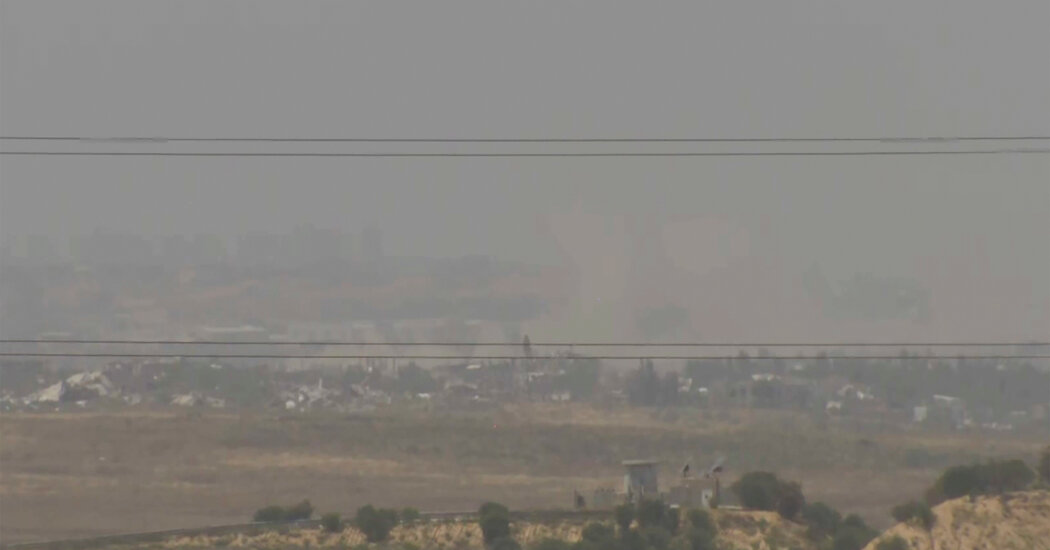The AP reported that it adhered to Israeli military censorship rules, including restrictions on broadcasting troop movements that could put soldiers at risk, and that the feed largely showed smoke rising over Gaza. It said officials had not previously flagged the placement of its camera in southern Israel as problematic, but had noted that its images had appeared live on Al Jazeera.
It also reported that Israeli authorities had conveyed a verbal order last week to suspend the live broadcast, but the order was not respected.
As a major telecommunications service, The AP makes its content available to subscribers around the world.
Yair Lapid, the leader of Israel's parliamentary opposition, had criticized the Communications Ministry for confiscating AP equipment, calling the move “madness.”
“This is not Al Jazeera. This is an American media that has won “dozens of Pulitzer Prizes, he said, she said. “This government is acting as if it has decided to ensure at all costs that Israel is ostracized around the world.”
Ms. Easton said the Israeli authorities should return the AP's equipment so it can restore the live feed and “continue providing this important visual journalism to thousands of media outlets around the world.”
In Israel, Al Jazeera's Arabic-language coverage has often been criticized for amplifying Hamas's perspective.
Israeli Prime Minister Benjamin Netanyahu and other Israeli officials have called the network a “mouthpiece” for Hamas, which led the Oct. 7 attacks on Israel from Gaza that sparked the war. That day, Al Jazeera repeatedly reported statements from Hamas officials calling for a violent uprising in the West Bank.
Al Jazeera said Israel's decision to halt its operations in the country violated “the fundamental right to access information.” It said it had not breached professional media standards.
The Foreign Press Association, which represents Israeli and Palestinian journalists working for international news organizations, called the seizure of The AP's equipment an “outrageous” decision that prevents The AP from “providing crucial images of northern Gaza to all other media around the world.” .”
“Israel's move today is a slippery slope,” it said in a statement Tuesday. “Israel could block other international news agencies from providing live footage from Gaza. It could also allow Israel to block media coverage of virtually any news event for vague security reasons.”
Under the new law on foreign media, if the prime minister believes that a foreign media outlet “materially undermines” Israel's national security, the government can temporarily close its offices, confiscate its equipment, remove it from Israeli television providers via cable and satellite and block access to any channel's online platforms hosted on servers in Israel or owned by Israeli entities.
Johnatan Reiss AND Gaya Gupta contributed reporting to this article.





